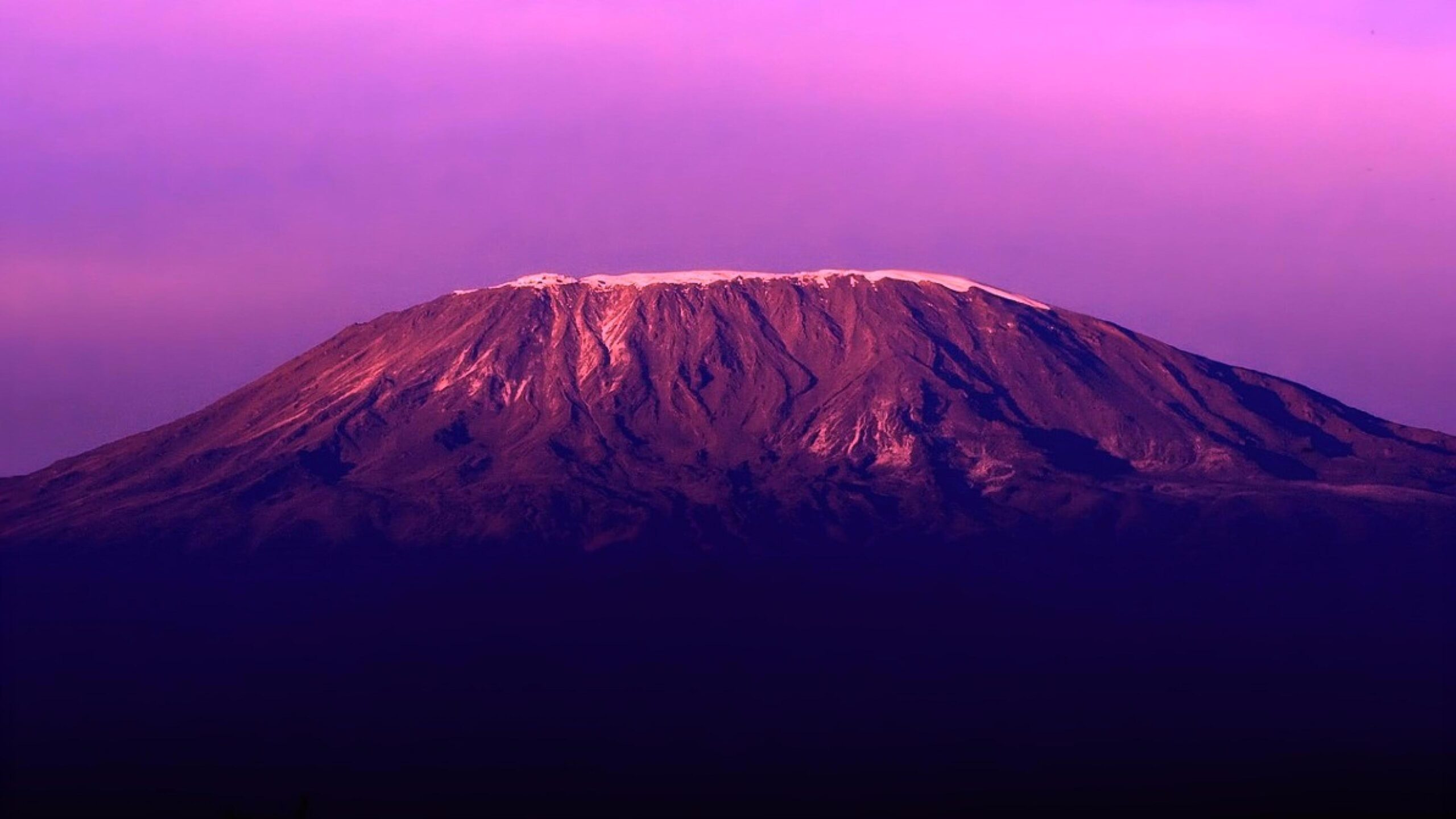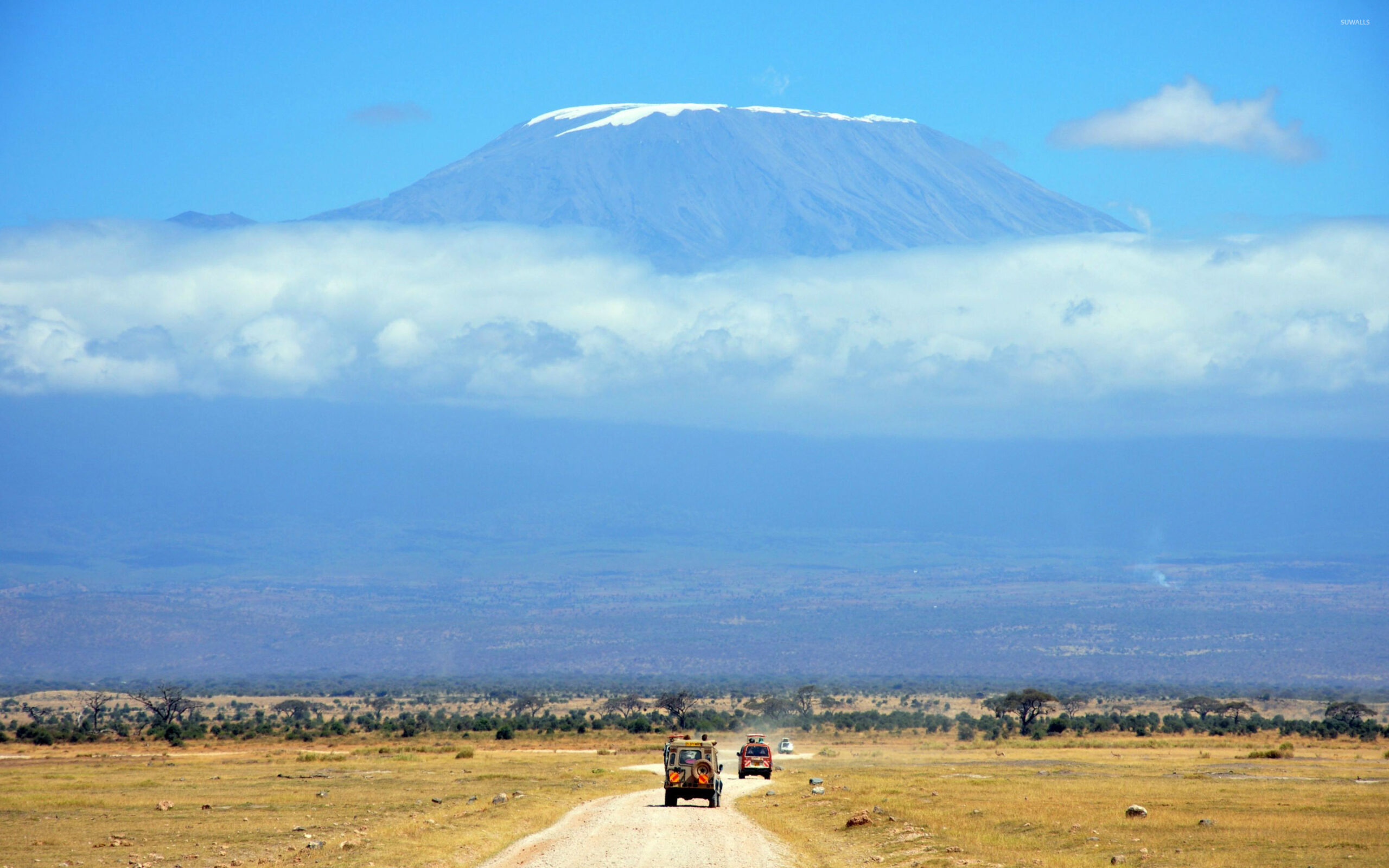Mt. Kilimanjaro Umbwe 9 days


Itinerary for Hiking Mt. Kilimanjaro Via Umbwe Route
Mount Kilimanjaro, the highest peak in Africa, stands at 5,895 meters (19,341 feet) above sea level. Located in Tanzania, this iconic mountain is renowned for its stunning, snow-capped summit and pristine, diverse ecosystems, ranging from lush rainforests to alpine deserts. Hiking Kilimanjaro offers adventurers a challenging yet rewarding experience, as they ascend through ever-changing landscapes to reach the "Roof of Africa". The Umbwe Route is one of the shortest and steepest routes to Kilimanjaro's summit, often considered the most challenging. It is less crowded and offers stunning scenery, but due to its rapid ascent, it's generally recommended for experienced trekkers. The 9-day itinerary below is designed to allow for better acclimatization by incorporating additional days on the mountain.
Good to Know:
-
Country: Tanzania
-
Visa Requirements: Yes
-
Languages spoken: English & Swahili
-
Per Person: $3,000 - $5,500
-
Important to have Visa & Travel Insurance
-
A knowledgeable guide will greatly enhance your experience.
-
Trekking Clothes, Personal Gear, Poles and Other Important Hiking equipment is necessary.
Day 1: Arrival in Moshi/Arusha
Description: Arrive in Moshi or Arusha, where you'll be transferred to your hotel. You’ll meet your guide for a pre-climb briefing, gear check, and final preparations.
Accommodation: Hotel in Moshi/Arusha
Day 2: Umbwe Gate to Umbwe Cave Camp
Elevation: 1,600m to 2,850m
Distance: 11 km
Hiking Time: 5-7 hours
Habitat: Rainforest
Description: After breakfast, you'll be driven to the Umbwe Gate for registration. The trek begins in the dense rainforest, with a steep and challenging climb up a narrow ridge between two valleys. You’ll reach Umbwe Cave Camp in the late afternoon, where you’ll spend your first night on the mountain.
Day 3: Umbwe Cave Camp to Barranco Camp
Elevation: 2,850m to 3,900m
Distance: 6 km
Hiking Time: 4-5 hours
Habitat: Moorland
Description: The trail continues steeply through the forest until it eventually opens up into the moorland. As you ascend, you’ll enjoy stunning views of the surrounding valleys and the towering Barranco Wall. Arrive at Barranco Camp in the early afternoon, where you'll have time to rest and acclimatize.
Day 4: Barranco Camp to Karanga Camp
Elevation: 3,900m to 4,040m
Distance: 5 km
Hiking Time: 4-5 hours
Habitat: Alpine Desert
Description: Start your day by tackling the Barranco Wall, a steep climb that requires some scrambling. Once at the top, the trail continues through the alpine desert with several ascents and descents before reaching Karanga Camp. This shorter day allows for further acclimatization.
Day 5: Karanga Camp to Barafu Camp
Elevation: 4,040m to 4,640m
Distance: 4 km
Hiking Time: 3-4 hours
Habitat: Alpine Desert
Description: Today’s trek is a relatively short but steep climb to Barafu Camp. The trail traverses through the alpine desert, with stunning views of the mountain’s summit. Upon reaching Barafu Camp, you’ll prepare for the final ascent to Uhuru Peak. After an early dinner, rest in preparation for the midnight summit push.
Day 6: Barafu Camp to Uhuru Peak to Crater Camp
Elevation: 4,640m to 5,895m (Uhuru Peak) to 5,720m (Crater Camp)
Distance: 15 km
Hiking Time: 10-14 hours
Habitat: Arctic Zone
Description: Around midnight, you'll begin your final ascent to the summit. The steep climb takes you up scree slopes to Stella Point on the crater rim. From there, it’s a short hike to Uhuru Peak, the highest point in Africa. After celebrating your achievement, you’ll descend slightly to Crater Camp, one of the most unique and remote campsites on Kilimanjaro, located within the Kibo Crater.
Day 7: Crater Camp to Millennium Camp
Elevation: 5,720m to 3,820m
Distance: 12 km
Hiking Time: 6-8 hours
Habitat: Arctic Zone to Alpine Desert
Description: After exploring the Crater, including the stunning views of the glaciers, you’ll begin your descent back to Stella Point and then down to Barafu Camp. From Barafu, continue descending through the alpine desert to Millennium Camp, where you’ll spend the night.
Day 8: Millennium Camp to Mweka Gate
Elevation: 3,820m to 1,640m
Distance: 12 km
Hiking Time: 5-6 hours
Habitat: Rainforest
Description: Continue your descent through the lush rainforest, enjoying the scenery as you make your way to Mweka Gate. Upon reaching the gate, you'll receive your summit certificate before being transferred back to your hotel in Moshi or Arusha for a well-deserved rest.
Day 9: Departure
Description: After breakfast, depending on your travel plans, you’ll be transferred to Kilimanjaro International Airport or continue your Tanzanian adventure with a safari or a visit to Zanzibar.


Prices vary depending on the tour operator, group size, and whether you opt for budget, mid-range, or luxury services.
What’s Included:
Accommodation:
Pre- and Post-Trek Hotel Nights: Usually 2 nights in Moshi or Arusha (one night before the trek and one night after).
Camping Accommodation: Tents and sleeping pads during the trek.
Meals:
All Meals on the Mountain: Breakfast, lunch, and dinner during the trek.
Drinking Water: Treated water provided throughout the trek.
Guides and Staff:
Professional Mountain Guides: Certified and experienced Kilimanjaro guides.
Porters: Porters to carry your gear and set up camp.
Cooks: A cook to prepare meals on the mountain.
Park Fees:
Kilimanjaro National Park Fees: Entrance, camping, and rescue fees.
Group Equipment:
Camping Gear: High-quality tents, dining tents, tables, chairs, and cooking equipment.
First Aid Kit: A basic first aid kit carried by the guide.
Transportation:
Transfers: Round-trip transfers between your hotel and the Kilimanjaro trailhead.
Summit Certificate:
Climbing Certificate: Awarded to climbers who reach Uhuru Peak.
Oxygen Supply:
Oxygen: Emergency oxygen is typically carried by the guides.
What’s Not Included:
Personal Gear:
Clothing: Personal trekking gear such as jackets, base layers, waterproof gear, gloves, hats, etc.
Sleeping Bag: You may need to bring or rent your own sleeping bag (recommended to be rated for -10°C/14°F or lower).
Trekking Poles: Personal trekking poles, if needed.
Travel Insurance:
Comprehensive Travel Insurance: Including coverage for high-altitude trekking, medical emergencies, trip cancellation, and evacuation.
Visa and Vaccinations:
Tanzanian Visa: The cost of obtaining a visa for Tanzania.
Vaccinations: Any required vaccinations (e.g., yellow fever) and personal medications.
Meals Not on the Mountain:
Meals in Moshi/Arusha: Before and after the trek (unless specifically included in your package).
Tips for Guides, Porters, and Cook:
Gratuities: Tipping is customary and expected, typically ranging from $250 to $400 per climber for the entire crew
